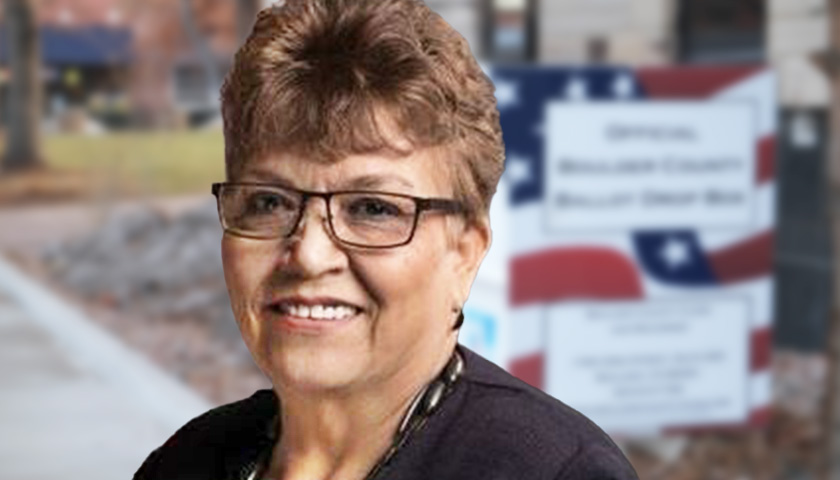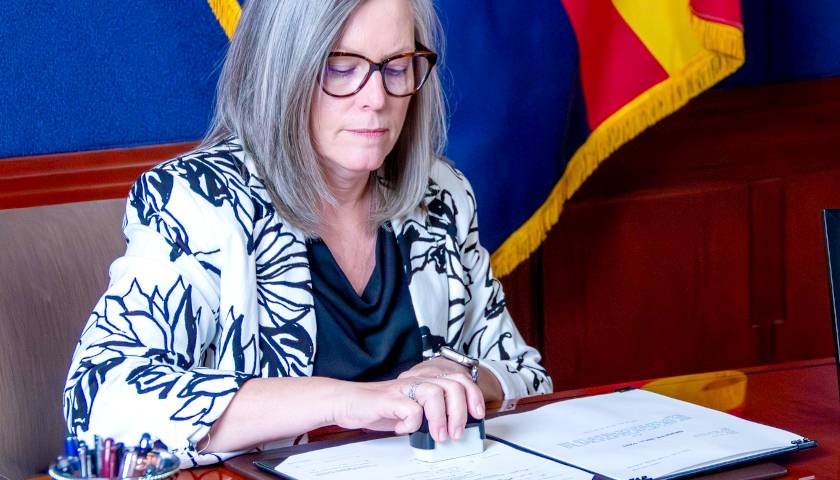Arizona Attorney General Mark Brnovich announced this week that two more defendants, both from San Luis, have been indicted with felonies for conspiracy and ballot abuse over illegally collecting ballots.
The indictments allege that Gloria Lopez Torres, a San Luis council member and Gadsden Elementary School District Board (GESD) member, collected seven ballots from Nadia Guadalupe Lizarraga-Mayorquin. The latter collected at least one ballot from a third party. The women put the ballots in ballot drop boxes on August 4, 2020, for the city’s municipal election.
State Representative Tim Dunn (R-Yuma) told The Arizona Sun Times that “there are lots of side deals that go in” in San Luis. He explained that since few people in the town have a mailbox, instead dependent on Post Office boxes, it’s become common for operatives to drive around assisting with voting. “You have to understand the whole process in San Luis,” he said. He said he hasn’t personally seen any of the illegal activity, but has heard about operatives trading “a loaf of bread or a gallon of milk.”
Dunn said Arizona’s 2016 law banning ballot harvesting had a chilling effect on the operation, but it didn’t really take hold until the highly publicized investigations started in 2020. “They didn’t realize people were watching them.” He rejected the spin that the prosecutions were isolated incidents, “It’s part of a systemic issue even though it was only a few prosecuted.”
He said most of Yuma’s ballot drop boxes are under video surveillance, but they aren’t operated by the Yuma County Recorder, they’re operated by entities like the library, so it’s not as easy to submit public record requests for the footage. Additionally, the videos aren’t kept for a long period of time, maybe 20 to 30 days.
One citizens group told him they will be monitoring the ballot drop boxes in Yuma County this election, but did not want to be identified. Their observers are already in place at the drop boxes, sitting in lawn chairs. Dunn said to remind anyone engaging in this activity, “Do not harass or intimidate.” Dunn urged observation instead. Many of the observers are downloading the app VotifyNow to take photos and videos and report suspicious incidents, which allows them to share problems in the area on election day.
Last week, a former mayor of San Luis and her neighbor, both Democratic operatives, were sentenced for ballot harvesting. Guillermina Fuentes was sentenced to two years of probation and 30 days in jail. Alma Yadira Juarez, who was caught handling the ballots with the former mayor, was sentenced to a year of probation.
Two men who caught some of the ballot harvestings during the city’s election with hidden cameras, Gary Garcia Snyder and David Lara, said during a radio interview with Sergio Arellano that they launched the sting in response to widespread ballot harvesting taking place in the community. “San Luis is ground zero as far as voter fraud,” Lara said. “That’s where it started in 1997. It has spread through the state and it was perfected in San Luis.” He said, “It got to the point where state candidates down the Democratic ticket would come to San Luis actually to learn how it was done, and then it spread.”
Lara predicted during the interview, which aired a year ago, that San Luis voter fraud was so significant that the small town would become nationally known. He said he’s known about the ballot harvesting for 20 years, beginning when he first began running for office and encountered it.
He explained, “It’s done in such a manner that it’s so subtle and gradual that the community believes it’s the norm. They think that it’s acceptable and they think this is the way it’s done; this is the way you do things.”
He relayed how nonprofits in San Luis fill out people’s ballots for them. He said the nonprofits tell people who come to them for help that they will help them register to vote, saying ‘well, don’t worry about it, just sign it and I’ll take care of it for you’ or they are instructed who to vote for.
“They’ve actually tricked the community into believing they’re doing the right thing, they’re voting, they’re participating, yet they’re not really informing the community that they’re being lied to, used, and manipulated,” Lara added. He said the ballot harvesting is primarily done by community organizers and nonprofits.
Arellano said he was very familiar with ballot harvesters in the Latino community who show up at people’s doors saying they are from “elections” and show people their voter registration information on their tablets, so people believe they are official and go along with their requests to fill out their ballots.
Snyder, who is running this year for State Senate on a platform of combating voter fraud, labels it a “ballot harvester lifestyle” since it’s so common and pervasive. He said one of the women being prosecuted works for one of the big Democratic nonprofits.
He also ran for the GESD school board against Torres in 2021, launching a recall effort against her, Fuentes and another board member due to the prosecution of Fuentes as well as the three women’s alleged nepotism and favoritism while serving on the board.
“I think as a school board member you have to recuse yourself so the school board itself doesn’t lose their respect and credibility,” he said. He told Arrellano during the interview that the women’s majority on the school board provides them with influence so they can take people’s ballots and vote for them.
Lara said a majority of the employees in the school district are required to turn over their ballots and those of their families to those school board members. Those school board members overlap with the city council members, who in turn make city employees turn over their ballots to them for voting.
Lara said he believes that a lot of the fraud in the 2020 presidential election was also accomplished through Democratic nonprofits. He said after the election was over and Donald Trump appeared to be losing, he couldn’t understand why no one reached out to San Luis to learn how the fraud was done. “Maybe because it’s going to step on big toes,” he mused.
He said there are about 2,000 to 4,000 fraudulent votes in San Luis at election time, with 2,000 being provable. “How many votes did Trump lose by? And if just 4,000 came out of San Luis…”
Arizona’s 2016 law banning ballot harvesting only permits family members, household members or caregivers to collect voted or unvoted early ballots from another person. Democrats sued the state over it, and when Democratic Secretary of State Katie Hobbs refused to defend the law, Brnovich stepped in instead, ultimately winning the case at the U.S. Supreme Court in Brnovich v. DNC.
– – –
Rachel Alexander is a reporter at The Arizona Sun Times and The Star News Network. Follow Rachel on Twitter. Email tips to [email protected].
Photo “Gloria Lopez Torres” by City of San Luis Arizona. Background Photo “Ballot Drop Box” by Paul Sableman. CC BY 2.0.






[…] (pictured above) pleaded guilty to her role in a ballot harvesting scheme after she was indicted following the release of camera footage obtained by Garcia Snyder and David Lara, a San Luis […]
[…] and careers and makes them question their sanity. Stories of mass election fraud, like the type “2,000 Mules” exposed in Yuma County, go ignored. The focus needs to be on figuring out […]
[…] and careers and makes them question their sanity. Stories of mass election fraud, like the type “2,000 Mules” exposed in Yuma County, go ignored. The focus needs to be on figuring out […]
[…] and careers and makes them question their sanity. Stories of mass election fraud, like the type “2,000 Mules” exposed in Yuma County, go ignored. The focus needs to be on figuring out […]
[…] and careers and makes them question their sanity. Stories of mass election fraud, like the type “2,000 Mules” exposed in Yuma County, go ignored. The focus needs to be on figuring out […]
[…] and careers and makes them question their sanity. Stories of mass election fraud, like the type "2,000 Mules" exposed in Yuma County, go ignored. The focus needs to be on figuring out how to turn […]